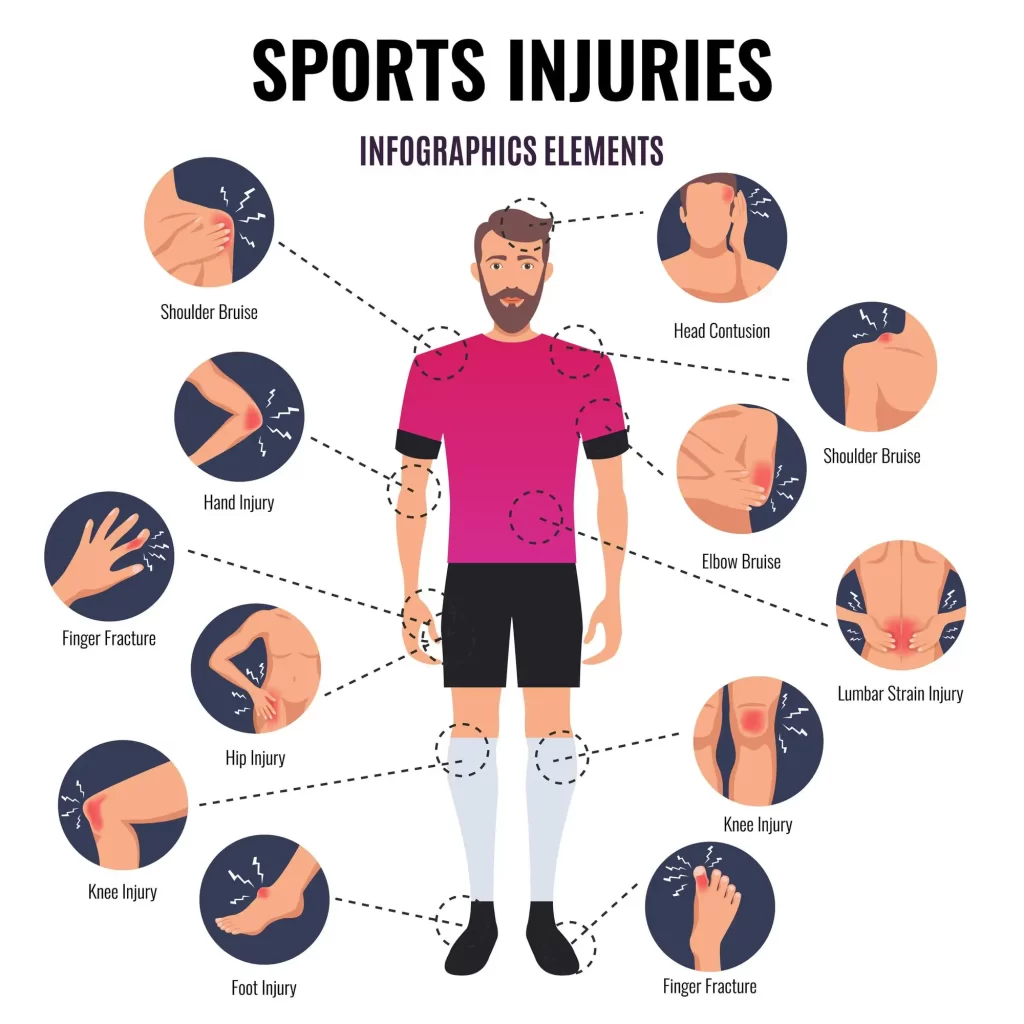Sports are a significant part of our society, with millions of people participating in them around the world. While sports have many benefits, including physical fitness, teamwork, and personal development, recent research suggests that they can also have negative effects on the brain. In this article, we will explore the ways in which sports can harm the brain and discuss the latest research findings on these types of sports risks.

Concussions
One of the most well-known ways that sports can harm the brain is through concussions. A concussion is a traumatic brain injury that occurs when the brain is jolted or shaken inside the skull. Concussions are common in contact sports such as football, hockey, and rugby, but can also occur in non-contact sports like soccer and basketball. Symptoms of a concussion include headaches, dizziness, confusion, memory loss, and difficulty concentrating.
Recent research has shown that even mild concussions can have long-term effects on the brain. A study published in the journal Brain in 2017 found that people who had suffered a concussion had reduced connectivity in the brain’s white matter, which is responsible for transmitting signals between different parts of the brain. This reduced connectivity was still present six months after the concussion had occurred, suggesting that the brain had not fully recovered.
Repeated Head Impacts
Concussions are not the only way that sports can harm the brain. Repeated head impacts, even those that do not result in a concussion, can also cause damage. A study published in the Journal of Neurotrauma in 2020 found that athletes who played contact sports had reduced brain volume compared to non-contact sport athletes. The study also found that the more years a person played contact sports, the greater the reduction in brain volume.
Another study published in the journal Brain in 2018 found that retired American football players who had played for more than 12 years had more cognitive and mood problems than those who had played for less time. The players with more years of play also had more evidence of brain damage on MRI scans.
Subconcussive Hits
In addition to concussions and repeated head impacts like sports risks, subconcussive hits can also harm the brain. Subconcussive hits are impacts to the head that do not result in a concussion or any immediate symptoms. However, over time, these hits can add up and cause damage to the brain.
A study published in the journal Neurology in 2018 found that college football players who had more subconcussive hits had worse cognitive function than those who had fewer hits. The study also found that players who had a history of concussion had worse cognitive function than those who had not suffered a concussion.
Youth Sports
While much of the research on the brain and sports has focused on adults, youth sports can also have negative effects on the brain. A study published in the Journal of Head Trauma Rehabilitation in 2018 found that youth football players had altered brain connectivity compared to non-football players. The study also found that the players with more years of play had greater alterations in brain connectivity.
Another study published in the journal Radiology in 2018 found that youth football players who had played for more than two years had smaller hippocampal volumes than non-football players. The hippocampus is a part of the brain that is important for memory and learning.
Another study published in the Oxford journal Brain Communications in 2022 revealed notable linear correlations between alterations in brain vital signs and exposure to head impacts.
Summary of How sport harms brains
Sports have many benefits, but they can brain injury in various ways. Concussions, repeated head impacts, subconcussive hits, and youth sports can all cause damage to the brain, which can lead to cognitive and mood problems. While more research is needed to fully understand the long-term effects of sports on the brain, it is clear that athletes and parents should be aware of the potential risks associated with participation in sports. It is important to take steps to minimize the risk of brain injury







